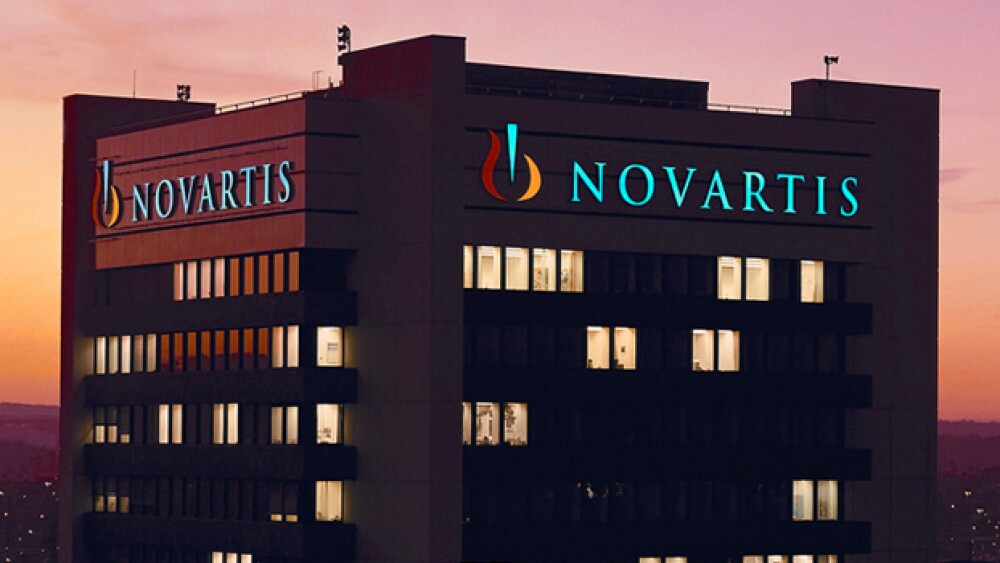Novartis released full results from its Phase III EXPAND trial of siponimod (BAF312) in secondary progressive multiple sclerosis (SPMS), which it published in the journal The Lancet.
Novartis released full results from its Phase III EXPAND trial of siponimod (BAF312) in secondary progressive multiple sclerosis (SPMS), which it published in the journal The Lancet.
The full data confirms results released earlier, which showed the drug had a 21 percent decrease in the risk of disease progression, reduced the brain volume loss rate by 23 percent, limited T2 lesion volume from increasing by a mean of about 80 percent, cut the annual relapse rate by 55 percent, and showed reduced disease progression to about 26 percent at six months.
One caveat, however, was the drug didn’t significantly improve walking performance.
SPMS is a version of the disease that typically leads to progressive, irreversible disability. Patients transition to SPMS, the company indicates, “after an initial phase of relapsing-remitting MS (RRMS), the most commonly diagnosed type of MS.”
The drug modulates sphingosine-1-phosphate (S1P) receptor subtypes 1 and 5 (S1P1 and S1P5).
“Today’s published, full EXPAND results show that siponimod can delay disability progression in typical established SPMS patients, where other approaches tested so far have been unsuccessful,” said Ludwig Kappos, principal investigator of EXPAND and a professor with University Hospital Basel, in a statement. “These data are all the more impressive when considering that the majority of patients already had advanced disability when starting treatment in EXPAND.”
The company plans to file for regulatory approval with the U.S. Food and Drug Administration (FDA) early this year, and has begun consultation with the European Medicines Agency (EMA), with hopes to file there in the third quarter of 2018.
The drug would seem to be well placed for approval with both agencies, despite the lack of results for improved walking performance. John Carroll with Endpoints News, writes, Novartis’ global head of neuroscience development, Danny Bar-Zohar, “notes that over half of the patients in the study had an EDSS disability score of 6 or higher, meaning they already needed a significant amount of assistance to walk. That may have influenced the outcome.”
“We saw a high variability in these patients,” Bar-Zohar told Carroll. “It may not be statistically significant but makes us wonder whether these results reflect the reality” of these patients’ overall health.
If approved, it would give the company’s Gilenya, also for MS, some protection against competitors. Gilenya is currently bringing in about $3 billion a year, but generics are expected on the market in the next two years. Novartis also markets Extravia (interferon beta-1b for subcutaneous injection) in the U.S. for relapsing forms of MS, and in Europe, for relapsing-remitting MS, secondary progressive MS with active disease, and in people who have had one clinical event that suggest a diagnosis of MS. In addition, in the U.S., its Sandoz Division markets Glatopa (glatiramer acetate injection), which is a version of Teva Pharmaceuticals’ Copaxone.
Carroll writes, “Roche, meanwhile, is expected to hit pay dirt with Ocrevus (ocrelizumab), which has been successful for both relapsing/remitting MS—where the bulk of the market is—and primary progressive MS patients (PPMS). Recently Celgene’s S1P drug ozanimod was unexpectedly stymied at the FDA, which issued a refuse-to-file notice on their application for MS. Days later, the little biotech Arena Pharmaceuticals impressed a range of analysts with mid-stage results for their S1P drug etrasimod for ulcerative colitis, raising the prospect of another one-day rival for the throne.”





